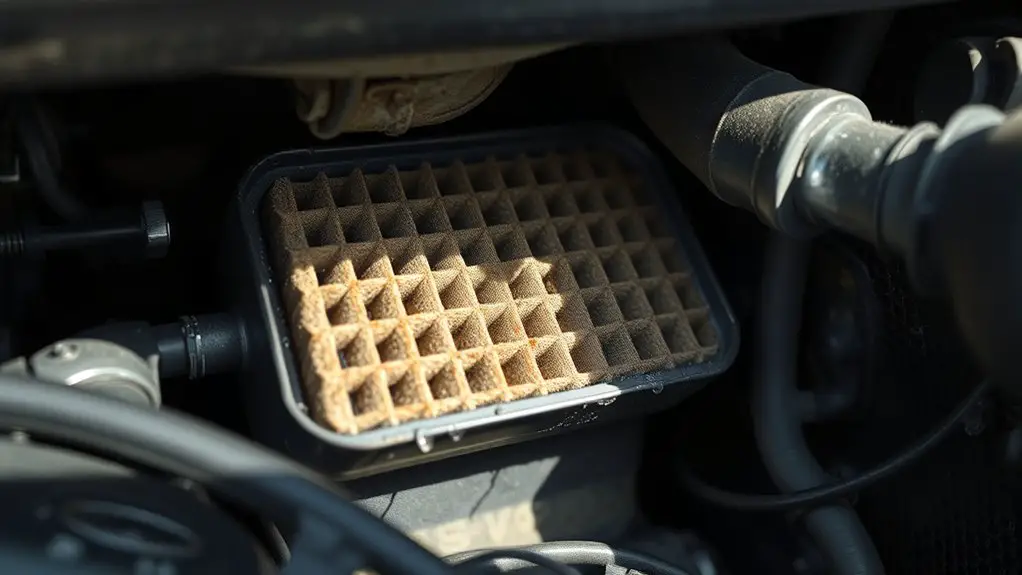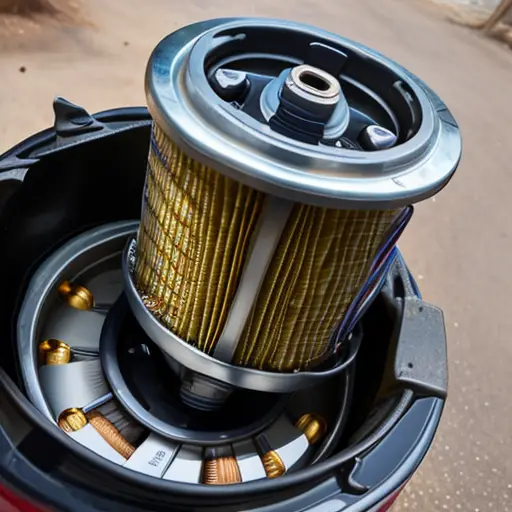Top Causes of AC Smells Musty and Preventive Tips
Musty AC odors usually come from moisture-driven mold and bacteria, blocked drains, and humidity leaks. You’ll want to fix drainage, seal leaks in ducts, and clean coils and condensate pans to stop stagnant water and reduce odor sources. Regular maintenance matters: replace or clean filters every 1–3 months, guarantee proper condensate line pitch, and keep airflow strong to prevent moisture buildup. If these steps aren’t enough, you can uncover deeper moisture issues and targeted cleaning ahead.
Common Causes of Musty AC Odors

Musty odors in your air conditioner usually point to moisture-related issues. When you notice that smell, you’re looking at conditions that invite mold growth and bacteria. The most common culprits are air leaks, clogged condensate drains, and overflowing pans that create moist environments behind panels. If return ducts pull in humid air, you’ll amplify condensation on coils, feeding microbe colonies. Stagnant water in trays or lines becomes a breeding ground, releasing musty notes into the space you’re cooling. Regular inspection of drain lines, pans, and filter seals helps prevent buildup and odor transfer. You’ll also want to verify proper evaporator coil clearance; restricted airflow compounds moisture and stagnation. Keep the condensate line pitched correctly, and don’t ignore slow drainage. While some odors fade with filter changes, persistent mustiness signals deeper moisture issues requiring targeted cleaning and component checks to restore freshness and operational freedom.
Preventive Tips to Keep Your AC Smelling Fresh

To keep your AC smelling fresh, establish a simple routine that targets moisture control and airflow. You’ll minimize mold risks and keep performance steady by focusing on practical steps you can own.
To keep your AC smelling fresh, target moisture and airflow with practical, owner-driven steps.
1) air filter maintenance: replace or clean filters every 1–3 months, depending on use and dust. Choose a filtration level that balances air quality with airflow to prevent damp pockets.
2) regular cleaning: wipe condensate pans, check for standing water, and vacuum vents to remove dust buildup that fuels odors. Schedule a quarterly sweep of coil surfaces and drain lines.
3) moisture control diligence: seal leaks in ducts, maintain consistent humidity, and run fans after use to dry the system. This reduces microbial growth and keeps scent neutral.
Frequently Asked Questions
Can Musty Odors Indicate Mold Inside Ductwork?
Yes, musty odors can indicate mold in ductwork, but not always. You should check for visible growth, moisture, and staining, and test humidity levels. If you smell it, consider air leaks or poor insulation that harbor moisture. For best results, schedule professional mold prevention assessment and duct cleaning if contamination is found. Regular inspections help you stay ahead, supporting efficient airflow and healthier air in your space.
Do Air Filters Alone Prevent All Musty Smells?
An emphatic no, air filters alone don’t prevent all musty smells. You’ll need ongoing air filter maintenance, plus addressing musty smell causes beyond the filter. You keep indoor air steady, you monitor humidity, you seal leaks, you clean ducts, you replace old filters, you remove moisture sources. With each step, you reduce odors, you improve efficiency, you gain control. Air filter maintenance helps, but it isn’t a universal cure for every musty smell cause.
Are Musty Odors a Sign of Coolant Leaks?
Yes, musty odors can indicate coolant leaks, but they aren’t guaranteed. If you notice musty odors combined with visible coolant pools, sweet-taint smell, or cooling system performance issues, check for coolant leaks promptly. Don’t ignore this, as escaping coolant can damage components and pose health risks. Use proper diagnostic tools, inspect hoses, connections, and the evaporator core. Address coolant leaks quickly to prevent costly damage and restore safe, reliable AC performance.
Can Dehumidifiers Fix Existing Mold Growth in Ducts?
A dehumidifier alone can’t fix existing mold growth in ducts; it helps slow spread by reducing humidity, but you need physical remediation. You’ll want professional mold remediation, duct cleaning, and addressing moisture sources. Rely on dehumidifier effectiveness to keep RH below 50–60% after cleanup. Combine with improved ventilation and moisture control for mold prevention, and guarantee you seal leaks to prevent future growth. Do not rely solely on dehumidifiers for remediation.
Is It Safe to Run AC With a Strong Musty Smell?
Direct answer: no, don’t run your AC with a strong musty odor. That smell signals hidden moisture, potential mold, or mildew, and pushing air can spread spores. Instead, shut it down and inspect for musty odor sources, replace filters, clean coils, and check drain lines. Use AC maintenance tips like improving airflow and sealing leaks. If unsure, consult a pro. You deserve cleaner air and safer operation, with practical, maintainable steps.




